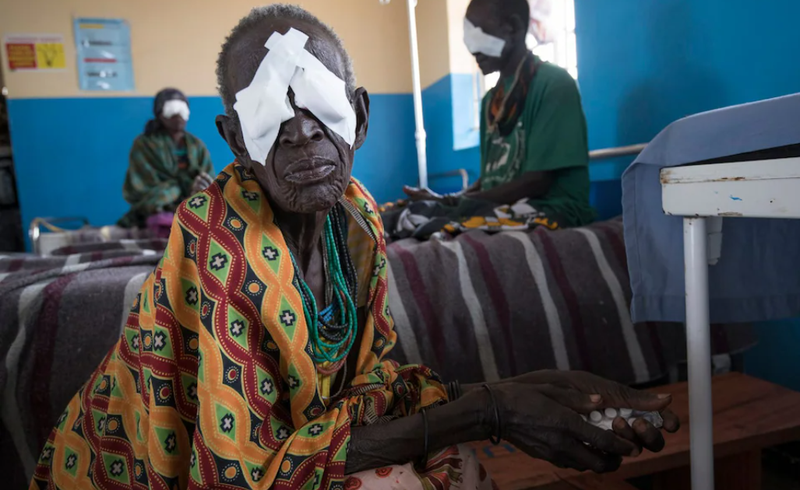
Image credit: Simon Townsley
Can you imagine a pain so excruciating that you can barely open your eyes? That you choose to pluck out your eyelashes for a brief reprieve? A pain that could ultimately lead to you losing your sight?
This is trachoma, the leading cause of infectious blindness in the world. Some 167 million people globally live in areas where the disease is present, 90 per cent of whom live in Africa. Trachoma is considered a public health problem in 44 countries – but Gambia is no longer one of them.
On Tuesday the World Health Organization announced trachoma has been eliminated in my country. This is a significant and deeply important story of progress that must be celebrated. After decades of hard work, our children can grow up without fear of this disease.
Trachoma, a contagious bacterial infection of the eye, often begins in early childhood and progresses over the years due to episodes of reinfection. It leads to inflammation and scarring of the inner eyelid and, if left untreated, can cause irreversible blindness.
The agony and disability of trachoma can stop people earning a living and prevent children going to school. Trachoma is a disease of poverty, affecting the most vulnerable. But this does not have to be the case.
The disease spreads through personal contact (via hands, clothes or bedding) and by flies that have been in contact with discharge from the eyes or nose of an infected person.
Trachoma has been a major health problem in Gambia for nearly five decades. In 1989, the WHO and the International Centre for Eye Health carried out a study that showed at least 84 per cent of blindness could either be prevented or was curable.
This was deemed unacceptable, and we felt Gambians deserved better. As a result, its elimination was declared a priority for the Ministry of Health of the Gambia and the National Eye Health programme was established.
So how did we do it?
We adopted a four-stage plan based on evidence and expertise. Firstly, we focused on treatment. Pfizer, through the International Trachoma Initiative, donated azithromycin, the main drug used in tackling trachoma in children and adults. From 2010-2020, over two billion tablets were shipped.
We worked with the community, including religious leaders, radio station and health workers to gain trust from the community; to share messages about the programme and to encourage a high uptake of the treatment. We also put reliable distribution measures into place.
Secondly, we used schools and national radio announcements across different regions and cultures to emphasise the importance of facial cleanliness. Community groups distributed soap and highlighted the importance of access to clean water.
We also prioritised surgery as a treatment, the best way to prevent blindness from trachoma. Whilst blindness only develops in a small fraction of those who suffer from the bacterial infection, it must be caught early.
And finally, we introduced environmental improvements. Alongside global partners, the government provided communities across Gambia with clean water through hand pumps and solar water pumping systems as a vital preventive measure.
Today marks a tremendous and collective achievement for Gambia and the world. We are now one of 11 countries that has eliminated trachoma since 2012, and the third country to achieve this milestone in Africa, showing how solvable these problems are and what can be truly achieved if we work together.
We were able to eliminate the disease through partnerships with leading academic institutions, pharmaceutical companies and governments, including the UK government. We have demonstrated that our teamwork, commitment and dedication to provide quality, effective and accessible health care across the country have paid dividends.
Covid-19 has disrupted all our lives and continues to jeopardise progress towards elimination of many public health problems. It has changed the way we live our lives and has taken loved ones away from many of us.
However, we cannot let it stop us. We know elimination of trachoma is possible and we must make it a priority to address and end now.